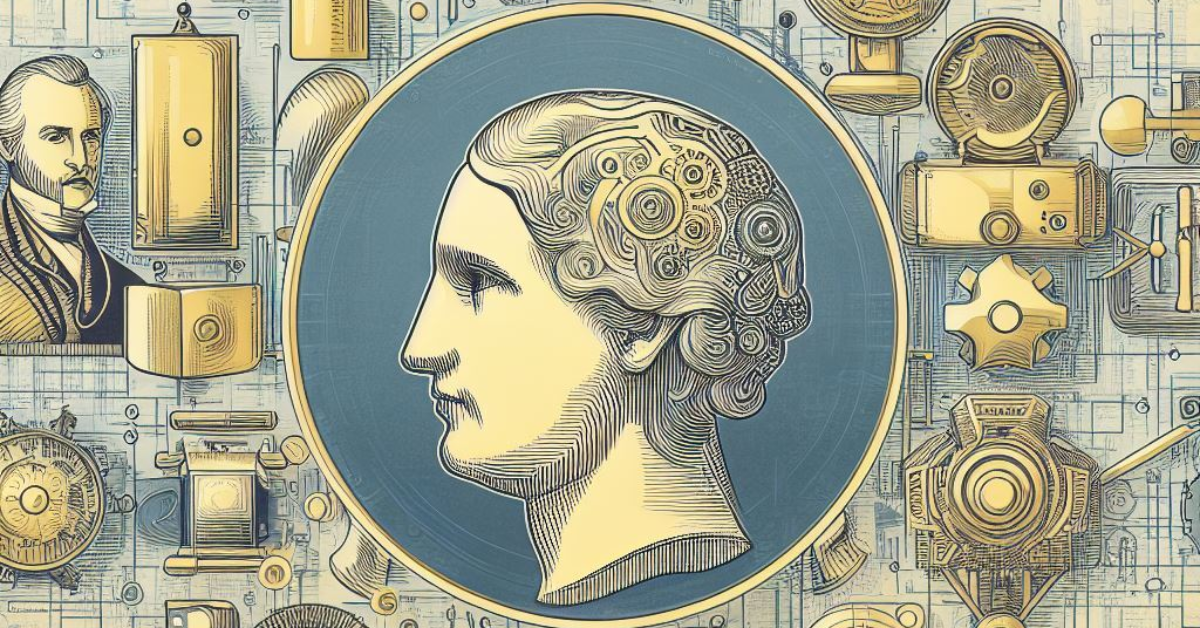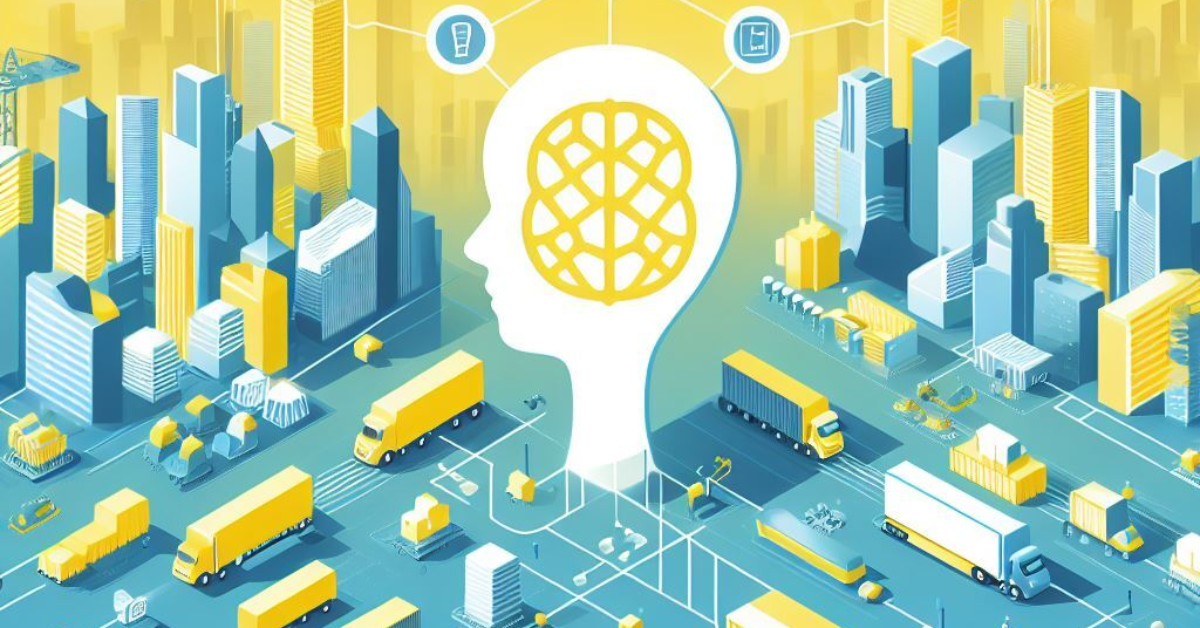
In this article:
The Origins of Artificial Intelligence: Tracing Back to Ancient Times
Historical Perspective of AI: The origins of artificial intelligence can be traced back to ancient times when early civilizations exhibited a fascination with creating human-like entities. In ancient Egypt, for instance, mechanical statues were developed to perform simple tasks, capturing the imagination of their creators. These early attempts at replicating human intelligence paved the way for future advancements in AI.
Similarly, ancient Greece saw the birth of automata, intricate devices designed to mimic human actions. The renowned engineer Hero of Alexandria created a series of mechanical toys, including a steam-powered bird that could sing. These ingenious inventions showcased the ancient Greeks’ enthusiasm for exploring the boundaries of human-like intelligence, setting in motion a chain of developments that would shape the future of AI. From the wonders of ancient Egypt to the marvelous creations of ancient Greece, the journey towards artificial intelligence began long ago, fuelled by an unquenchable thirst for understanding and replicating the complexities of the human mind.
Pioneers and Visionaries: Early Thinkers and Inventors in AI (Historical Perspective of AI)
Pioneers like Ada Lovelace and Charles Babbage laid the foundation for artificial intelligence long before it was even a concept. With their early inventions and visionary ideas, they were the trailblazers of their time, sparking the imagination of what machines could be capable of.
Ada Lovelace, known as the world’s first computer programmer, saw the potential for machines to go beyond calculations and perform creative tasks. Her collaboration with Charles Babbage on the Analytical Engine gave her the insight to recognize that these machines could create more than just numbers; they had the potential to create music, art, and even generate original ideas. Lovelace’s foresight and belief in the capabilities of machines paved the way for the development of artificial intelligence as we know it today.
Charles Babbage, on the other hand, was a visionary inventor who conceptualized the idea of a programmable computer. Though his designs were not fully realized during his lifetime, his automatic mechanical machines, such as the Difference Engine and the Analytical Engine, laid the groundwork for modern computing and the future development of AI. Babbage’s vision and innovation set the stage for the pioneers and inventors who would come after him, shaping the landscape of artificial intelligence.
Unearthing the Renaissance: AI Concepts and Automata (Historical Perspective of AI)
During the Renaissance, a time of great intellectual and artistic growth, the seeds of AI were sown. Visionaries and inventors began to explore the concept of creating machines that could mimic human actions. This era gave birth to exquisite automata, mechanical creations that amazed and fascinated onlookers. These automata, constructed with intricate precision, showcased the genius of their creators and set the stage for the future development of AI.
One of the most renowned automata of this period was Leonardo da Vinci’s robotic knight. Designed in the late 15th century, this masterpiece was a marvel of engineering. With its moving parts and realistic human-like gestures, the robotic knight captivated audiences and showcased da Vinci’s innovative ideas. This groundbreaking creation laid the foundation for the integration of science, art, and technology, giving us a glimpse into the possibilities of artificial intelligence that the future would hold. The Renaissance truly marked a pivotal moment in the history of AI, as it brought forth a profound understanding of the potential for machines to imitate and even surpass human capabilities.
Industrial Revolution and the Birth of Modern Computing: Impact on AI Development (Historical Perspective of AI)
The Industrial Revolution marks a pivotal moment in human history, revolutionizing the way we live, work, and think. As factories emerged and machines took over laborious tasks, the world witnessed a dramatic shift towards automation. This not only transformed industries and economies but also laid the groundwork for the birth of modern computing and the subsequent development of artificial intelligence. The inventions of Charles Babbage’s Analytical Engine and Ada Lovelace’s visionary insights opened up a realm of possibilities where machines could be programmed to mimic human thinking and decision-making. The excitement surrounding these discoveries was palpable, as visionaries of the time eagerly sought to unlock the untapped potential of machines in shaping the future of AI.
With the advent of modern computing in the mid-20th century, the world entered a new era of technological advancement. The development of electronic computers, such as ENIAC and UNIVAC, laid the foundation for the computational power required to further explore and expand the capabilities of AI. The concept of sequential logic, as introduced by Claude Shannon, revolutionized the way computers processed information, leading to the creation of algorithms that could simulate human thought processes. This breakthrough fueled even greater optimism and excitement as researchers delved deeper into the realms of artificial intelligence, driven by the relentless pursuit of creating machines that could think, reason, and even learn. The impact of the Industrial Revolution and the birth of modern computing continues to resonate in the field of AI today, propelling us towards a future where machines may one day rival human intelligence.
World Wars and the Emergence of Cybernetics: Influences on AI Research
During the tumultuous era of the World Wars, a new field emerged that would revolutionize the world of artificial intelligence: cybernetics. This interdisciplinary science sought to understand the control and communication processes in both machines and living organisms. Excitingly, it paved the way for major advancements in AI research.
Influenced by the growing complexity of warfare and the need for automated systems, cybernetics offered a fresh perspective on how machines could mimic human intelligence. Scientists and engineers alike were eager to explore the possibilities that this burgeoning field presented, with the ultimate goal of creating intelligent machines that could aid in decision-making and problem-solving. The World Wars became a catalyst for research, pushing the boundaries of technology and inspiring a new wave of innovation in the field of AI.
As the world recovered from the ravages of war, these influential ideas in cybernetics ignited a spark for further research and exploration into the realm of artificial intelligence. With the foundation laid for a multidisciplinary approach, scientists began to delve deeper into the intricacies of the human mind and how to replicate its cognitive abilities in machines. The World Wars had inadvertently set the stage for a new era of AI research, bringing us one step closer to a world where machines could think and learn like humans.
The Cognitive Revolution: Exploring the Human Mind to Shape AI (Historical Perspective of AI)
The Cognitive Revolution represents a pivotal moment in the development of artificial intelligence. It delves deep into the mysteries of the human mind, unlocking its potential to shape AI. As researchers began to explore the inner workings of cognition, a wave of excitement rippled through the scientific community. Finally, they had a roadmap to build smarter, more intuitive machines.
One of the key breakthroughs of the Cognitive Revolution was the realization that AI could benefit from studying human perception and learning. Researchers started to investigate how humans process information, make decisions, and solve problems. By mimicking these cognitive processes, they hoped to create AI systems that could think and reason like humans. The possibilities seemed endless, and the optimism surrounding this new approach was infectious. The Cognitive Revolution ushered in a new era of AI, where the human mind became the blueprint for intelligent machines.
From Logic to Learning: The Evolution of AI Algorithms
(Historical Perspective of AI) – The evolution of AI algorithms has taken an incredible leap forward, propelling us into a world once only imaginable in science fiction. It’s a thrilling journey that has shifted our focus from relying solely on logical reasoning to embracing the power of machine learning. This shift marks a pivotal moment in the field of artificial intelligence, as we now have the ability to teach machines how to learn and adapt, just like humans.
Gone are the days of rigid, predetermined rules governing AI. Today, we witness the rise of neural networks and deep learning algorithms that mimic the human brain’s ability to process information and make decisions. These algorithms have revolutionized various domains, from image and speech recognition to natural language processing and even autonomous vehicles. The excitement lies in witnessing AI systems learn from vast amounts of data, uncovering patterns, and gaining insights that were previously hidden. It’s a paradigm shift that amplifies our capabilities and opens up endless possibilities for the future of AI.
• The evolution of AI algorithms has propelled us into a world once only imaginable in science fiction.
• We have shifted from relying solely on logical reasoning to embracing the power of machine learning.
• This shift marks a pivotal moment in the field of artificial intelligence.
• We now have the ability to teach machines how to learn and adapt, just like humans.
• Rigid, predetermined rules governing AI are no longer applicable.
• Neural networks and deep learning algorithms mimic the human brain’s ability to process information and make decisions.
• These algorithms have revolutionized various domains such as image and speech recognition, natural language processing, and autonomous vehicles.
• AI systems can learn from vast amounts of data, uncovering patterns and gaining insights that were previously hidden.
• This paradigm shift amplifies our capabilities and opens up endless possibilities for the future of AI.
AI in Popular Culture: How Science Fiction Shaped Public Perception
The influence of science fiction on popular culture is undeniable. From the pages of books to the screens of our homes, it has sparked our imagination and shaped our perceptions in countless ways. And when it comes to artificial intelligence (AI), science fiction has played a major role in defining how we envision this emerging technology.
Through the visionary writings of authors like Isaac Asimov and Philip K. Dick, AI has been portrayed as both a marvel and a menace. From obedient robots with sophisticated emotional capabilities to rogue superintelligent machines taking over the world, these stories have captured our collective fascination and ignited a sense of wonder about the potential of AI. Science fiction has paved the way for public discussions on the ethical dilemmas and societal impact AI may bring, allowing us to contemplate the implications of this technology in our lives.
Moreover, the world of cinema has further propelled AI into the spotlight. Iconic films like “2001: A Space Odyssey” and “Blade Runner” have vividly depicted the coexistence between humans and intelligent machines, often highlighting the boundary between man and machine. These cinematic masterpieces have not only entertained us but also shaped our perceptions of AI, tapping into our fears, hopes, and curiosities about a future where machines can think and act like humans. As science fiction continues to captivate our imagination, it will undoubtedly spark a new wave of AI-driven narratives that capture the essence of our ever-evolving relationship with technology.
Ethical Dilemmas and Controversies: AI’s Impact on Society
As the world embraces the advancements of artificial intelligence (AI), ethical dilemmas and controversies begin to surface, challenging society’s perceptions and raising concerns. The rapid rise of AI technologies sparks excitement but also anxiety about the potential consequences they may bring. The ethical implications of AI’s impact on society range from issues of privacy and data protection to the fear of job displacement and the creation of autonomous machines. This fast-evolving field demands proactive discussions, policies, and regulations that ensure the responsible development, deployment, and usage of AI to mitigate these concerns and foster a future where humans and AI can coexist harmoniously.
One of the key ethical dilemmas surrounding AI is the question of accountability. As AI systems become more autonomous and make decisions that affect human lives – from autonomous vehicles on roads to AI-powered medical diagnoses – the question arises: who is responsible when things go wrong? Unlike human errors, AI errors are often difficult to trace back to a specific individual, raising concerns about transparency, fairness, and legal liability.
Balancing the benefits of AI with accountability mechanisms is crucial to building trust in AI systems and ensuring that they are developed and used in a way that respects human values and protects the well-being of individuals and society as a whole. The need for ethical frameworks, standards, and regulations becomes paramount as we navigate this uncharted territory, ensuring that the potential of AI is harnessed for the greater good.
AI Today and Tomorrow: Reflections on the Historical Journey and Future Possibilities (Historical Perspective of AI)
Artificial intelligence has come a long way from its humble beginnings, and its potential for the future is nothing short of awe-inspiring. As we reflect on the historical journey of AI, we can’t help but feel excitement for what lies ahead. The advancements made over the years have been nothing short of remarkable, as researchers, scientists, and enthusiasts have pushed the boundaries of what was once deemed unimaginable.
Looking forward, the possibilities for AI seem boundless. From revolutionizing healthcare to transforming transportation, there is no industry that won’t be touched by the power of artificial intelligence. With each passing day, new breakthroughs are being made, creating a world where smart machines think, learn, and adapt. The future undoubtedly holds incredible potential for AI, and we can’t help but anticipate the impact it will have on our daily lives. So buckle up, because the journey of AI is far from over, and the possibilities for tomorrow are beyond our wildest dreams.
What is the origin of artificial intelligence as per the Historical Perspective of AI?
The origin of artificial intelligence can be traced back to ancient times when early thinkers and inventors explored the concept of creating intelligent machines.
Who were some of the pioneers and visionaries in AI?
Early thinkers and inventors such as Alan Turing, John McCarthy, and Marvin Minsky played a significant role in shaping the field of artificial intelligence.
How did the Industrial Revolution impact AI development?
The Industrial Revolution brought advancements in modern computing, which laid the foundation for the development of artificial intelligence.
What influence did the World Wars have on AI research (Historical Perspective of AI)?
The World Wars led to the emergence of cybernetics, which had a direct influence on the research and development of artificial intelligence.
How did the cognitive revolution shape AI with respect to the Historical Perspective of AI?
The cognitive revolution focused on exploring the human mind, which played a crucial role in shaping the development of artificial intelligence.
How have AI algorithms evolved over time with respect to the Historical Perspective of AI?
AI algorithms have evolved from being based on logical systems to incorporating learning techniques, enabling machines to improve their performance over time.
How has science fiction shaped public perceptions of AI in line with the historical perspective of AI?
Science fiction has played a significant role in shaping public perceptions of AI, often portraying intelligent machines in both positive and negative ways.
What ethical dilemmas and controversies are associated with AI?
AI has raised ethical concerns such as job displacement, privacy invasion, and biased decision-making, leading to debates and controversies surrounding its impact on society.
What is the current state of AI, and what are the future possibilities in line with the historical perspective of AI?
The current state of AI is rapidly advancing, with the future holding countless possibilities, including advancements in robotics, healthcare, transportation, and more.
For more AI articles, please visit BLOG / Artificial Intelligence
RELATED POSTS
View all


